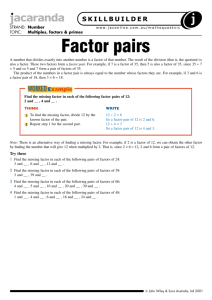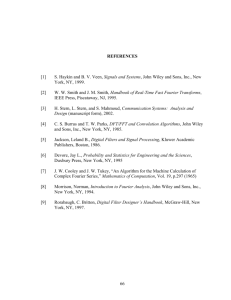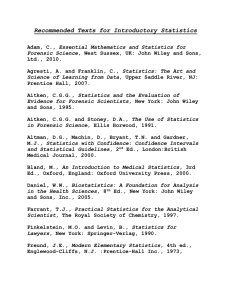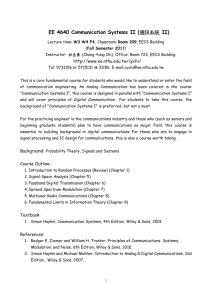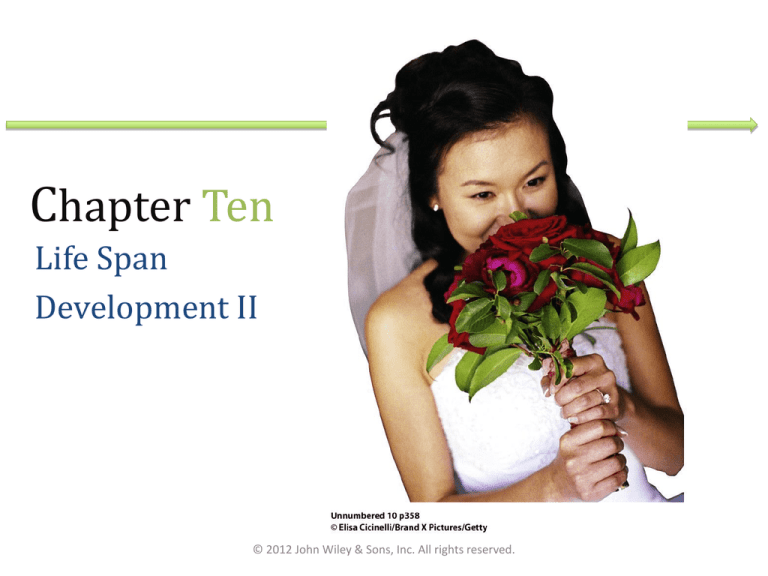
Chapter Ten
Life Span
Development II
© 2012 John Wiley & Sons, Inc. All rights reserved.
MORAL DEVELOPMENT
© 2012 John Wiley & Sons, Inc. All rights reserved.
Kohlberg’s Theory
Morality
A sense of right and
wrong
Early emergence
Cross-species
evidence
Three levels of moral
development with
two stages each
Each stage is universal
and in a set order
In Europe, a woman was near death from a
special kind of cancer. There was one drug that
doctors thought might save her. It was a form of
radium that a druggist in the same town had
recently discovered. The drug was expensive to
make, but the druggist was charging 10 times
what the drug cost him. He paid $200 for the
radium and charged $2000 for a small dose of
the drug. The sick woman’s husband, Heinz,
went to everyone he knew to borrow the money,
but he could gather together only about $1000,
half of what it cost. He told the druggist that his
wife was dying and asked him to sell it cheaper
or let him pay later. But the druggist said, “No, I
discovered the drug, and I’m going to make
money from it.” So Heinz got desperate and
broke into the man’s store to steal the drug for
his wife. (Kohlberg, 1964, pp. 18–19)
© 2012 John Wiley & Sons, Inc. All rights reserved.
Kohlberg’s Stages of Moral
Development
ANIMATION
© 2012 John Wiley & Sons, Inc. All rights reserved.
Kohlberg
Stages of
Moral
Reasoning
Kohlberg’s Stages of Moral
Development
© 2012 John Wiley & Sons, Inc. All rights reserved.
Criticisms of Kohlberg’s Theory
Moral Reasoning versus Behavior
Situational factors may be a better predictor of
moral behavior than a person’s moral stage
Cultural Differences
May be more reflective of an individualistic
culture
Gender Bias
May emphasize more typically male values
© 2012 John Wiley & Sons, Inc. All rights reserved.
PERSONALITY DEVELOPMENT
© 2012 John Wiley & Sons, Inc. All rights reserved.
Thomas and Chess’s
Temperament Theory
Temperament
An individual’s innate disposition or behavioral
style and characteristic emotional response
Three Temperament Categories
Most fit into one of these:
Easy (40%)—relaxed and agreeable
Difficult (10%)—overreactive and moody
Slow to warm up (15%)—need time to adjust
© 2012 John Wiley & Sons, Inc. All rights reserved.
Erikson’s Psychosocial Theory
Individuals pass through
eight developmental
stages, each with a
crisis to be resolved
Difficult to scientifically
assess
Stage labels may be more
appropriate for an
individualistic culture
© 2012 John Wiley & Sons, Inc. All rights reserved.
Erikson’s Psychosocial Theory:
Stages 1–4
© 2012 John Wiley & Sons, Inc. All rights reserved.
Erikson’s Psychosocial Theory:
Stages 5–8
© 2012 John Wiley & Sons, Inc. All rights reserved.
MEETING THE CHALLENGES OF
ADULTHOOD
© 2012 John Wiley & Sons, Inc. All rights reserved.
Committed Relationships
What are your relationship expectations?
Do you believe emotional closeness naturally
develops if two people have the right
chemistry?
Have you unconsciously accepted the imbalance
of power promoted by stereotypes or can you
share power and disagree?
Do you expect to change your partner or be able
to resolve all your problems?
© 2012 John Wiley & Sons, Inc. All rights reserved.
Committed Relationships
What are your relationship expectations?
Do you believe opposites attract?
Do you believe that love conquers all?
Do you believe that an intimate relationship is a
place where you can indulge your bad moods
and openly criticize one another?
© 2012 John Wiley & Sons, Inc. All rights reserved.
Committed Relationships
Marriage has many physical and mental-health
benefits
Realistic expectations are a key to success
About half of marriages in the U.S. end in
divorce
Healthy divorces need to accomplish three
tasks: let go, develop new social ties, redefine
parental roles (if there are children involved)
© 2012 John Wiley & Sons, Inc. All rights reserved.
Families
Family Violence
Some resources:
More likely if:
Marital conflict
Substance abuse
Mental disorders
Economic stress
Socially isolated
Poor communication and
parenting skills
Impulsivity
1-800-799-SAFE
www.ndvh.org
ndvh@ndvh.org
© 2012 John Wiley & Sons, Inc. All rights reserved.
WILEY VIDEO
Maternal
Separation
Families
Teen Pregnancy and
Parenthood
Correlated with:
• Health risks for mother and
child
• Lower educational
achievement
• Depression
Reduced with comprehensive
education and healthoriented services
© 2013 John Wiley & Sons, Inc. All rights reserved.
Resiliency
The ability to adapt effectively in the face of
threats
Resilient children have:
• Good intellectual functioning
• Relationships with caring adults
• Ability to regulate attention, emotions, and
behavior
© 2012 John Wiley & Sons, Inc. All rights reserved.
Work and Retirement
Positive careers
Work affects our health, relationships, leisure
time, and residence
Personality-job fit theory—a match between our
personality and career is a major factor in job
success and satisfaction
© 2012 John Wiley & Sons, Inc. All rights reserved.
Are You In the Right Job?
© 2012 John Wiley & Sons, Inc. All rights reserved.
Work and Retirement
Activity Theory of Aging
Successful aging is
fostered by a full and
active commitment to
life
Disengagement Theory of
Aging
Successful aging is
characterized by mutual
withdrawal between
the elderly and society
© 2012 John Wiley & Sons, Inc. All rights reserved.
Work and Retirement
Socioemotional
Selectivity Theory of
Aging
A natural decline in
social contact occurs
as older adults
become more
selective with their
time
© 2012 John Wiley & Sons, Inc. All rights reserved.
Work and Retirement
Midlife Crisis
Very rare
© 2012 John Wiley & Sons, Inc. All rights reserved.
GRIEF AND DEATH
© 2012 John Wiley & Sons, Inc. All rights reserved.
Grief
Four stages in “typical”
grieving:
Numbness
Yearning
Organization/Despair
Resolution/Reorganization
Helpful Techniques:
Recognize the loss and
allow yourself to grieve
Set up a daily activity
schedule
Seek help
No one way or correct
way to grieve
© 2012 John Wiley & Sons, Inc. All rights reserved.
Attitudes Toward Death and
Dying
Vary among cultures and
by age
Death is understood in
three concepts:
• Permanence
• Universality
• Nonfunctionality
© 2012 John Wiley & Sons, Inc. All rights reserved.
Kubler-Ross’s Stage Theory of
Dying
Denial
Anger
Bargaining
Depression
Acceptance
Criticized for not being scientifically validated
and not reflecting individual differences
© 2012 John Wiley & Sons, Inc. All rights reserved.
Gender and Cultural Diversity:
Understanding Development
Individualistic Cultures
Needs and goals of the
individual are emphasized
over the needs and goals of
the group
Define self through personality
and occupation
More likely to have ageism
Collectivistic Cultures
Needs and goals of the group
are emphasized over the
needs and goals of the
individual
Define self through social units
More likely to show respect for
elders
© 2012 John Wiley & Sons, Inc. All rights reserved.
Worldwide Ranking of Cultures
© 2012 John Wiley & Sons, Inc. All rights reserved.

